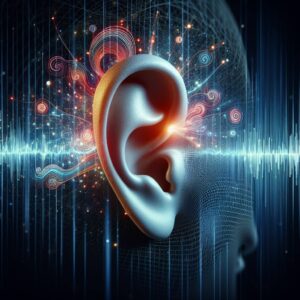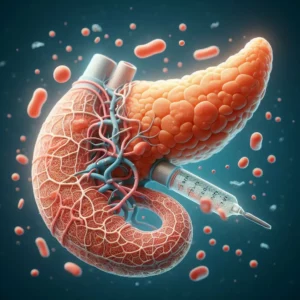Aspirin has been touted for its heart health benefits for decades, but what about the connection between aspirin usage and your penis? Can it help you achieve longer-lasting erections and successful intercourse? Will it cause your erectile health to decline? Is there such a thing as aspirin erectile dysfunction?
It can be hard to sort fact from internet fiction when it comes to medical advice these days. Like other over-the-counter medications, aspirin has its value, provides some benefits and even has a few drawbacks. But is it a benefit or a drawback for your penis?
Aspirin is one of several nonsteroidal anti-inflammatory drugs (NSAID). Some people take it daily for heart muscle benefits, while others use it occasionally for aches, pains and migraines.
That said, knowing whether to take it or avoid it when you’re planning some bedroom time requires a little background information.
Like many men, you might be wondering, Can aspirin help erectile dysfunction? And if so, how much aspirin should I take for erectile dysfunction?
We’ll answer these questions shortly. But let’s start with the most important part of this conversation (or any conversation, really): your penis.
Does Aspirin Help with Erectile Dysfunction?
To understand how erectile dysfunction and aspirin cross paths in the biological and chemical senses, we first need to look at the mechanics of erectile dysfunction.
What to Know About Erectile Dysfunction
Erectile dysfunction (ED) is a medical condition with many potential causes. It can be the result of cardiovascular diseases or psychological impairments. ED can also be caused by issues with high blood pressure or simply be a result of anxiety about intimacy (also known as performance anxiety).
The basics of healthy erectile function require an arousal trigger, blood flow to the penis and the successful capturing of that blood in the penis, making it hard.
Cardiovascular Risk Factors and the Risk of Erectile Dysfunction
Most of us understand that cardiovascular health and anxiety can affect performance. But at least some experts believe a quarter of the world’s ED issues may actually be the result of prescription-medication-induced problems with arousal and their impact on erectile function.
Now, where does that leave aspirin? Well, it’s not a medication that’s shown any negative effects on sexual function. But as an under-researched area of medicine, its beneficial effects also haven’t been sufficiently proven, either.
Aspirin and Arterial Erectile Dysfunction
Aspirin (also known as acetylsalicylic acid or salicylic acid) is an over-the-counter medication used in the treatment of angina, including stable angina and unstable angina. It’s also prescribed as a blood pressure treatment to reduce the risk of heart attacks, among other things.
Acetylsalicylic acid has been associated with a reduced risk of coronary artery disease, reductions in endothelial dysfunction, reduction of the symptoms of vascular disease, heart disease, and yes, even in the treatment of patients with erectile dysfunction, in some clinical studies.
Research on Patients With Erectile Dysfunction
Aspirin actually seems to help in the treatment of arterial erectile dysfunction — at least, according to a 2020 meta-analysis published in the American Journal of Men’s Health. The analysis concluded (albeit cautiously) that aspirin has a “significant effect” on the improvement of erectile function in patients who take it.
However, this is where our list of caveats begins.
That same meta-analysis looked at nearly 60 trials for its research but only found two trials of 214 men that met the study selection criteria. And of those two, only one appeared to lack substantial biases.
In other words, of the 58 trials that looked at doses of aspirin for ED, just one was sufficiently objective and used randomized controlled trials effectively. Those additional studies were insufficiently randomized, double-blind, placebo-controlled studies or had some detection bias issue that made them unsatisfactory.
The report’s authors believe this data is promising but stopped short of concluding that aspirin for ED was a recommendation they could make without further studies.
Aspirin looks like it might be an effective solution, though researchers have a lot of work to do to actually prove it.
Is Aspirin Safe to Take for Erectile Dysfunction?
Aspirin has been around for about a century, and the side effects have been well documented. The good news is that, for the most part, the anti-inflammatory drug is mild on side effects and generally considered safe when taken as directed.
That said, when taken for erectile dysfunction, side effects of drowsiness, constipation, dizziness and increased appetite were reported, among others.
Does Aspirin Work for ED?
While aspirin’s benefits for ED are in question, its safety track record for cardiovascular disease is well-documented and well-known. And in that capacity, it’s considered safe for daily use at recommended doses.
If you’re taking it, in other words, there’s no solid proof that it’ll “treat” your erectile dysfunction. But there’s fairly solid evidence it could provide benefits against conditions associated with ED like cardiovascular disease — and do so in a safe manner.
How Much Aspirin Should I Take for Erectile Dysfunction?
Aspirin is an over-the-counter drug you can buy online or off the shelf at virtually any pharmacy. However, it’s best to talk with a healthcare provider about exactly how much aspirin to take for erectile dysfunction.
Risks of Taking Aspirin for ED
The most common side effect of taking aspirin is gastrointestinal (GI) issues, specifically stomach inflammation and bleeding within the digestive tract. These problems occur in about 1 percent of the population, usually people with hypersensitivity to aspirin.
You should avoid aspirin if you have an ibuprofen allergy or an increased risk of GI bleeds.
There’s also a very rare condition called Reye syndrome in which aspirin may cause potentially fatal changes to the liver and brain. Additionally, it may increase the risk of intracerebral hemorrhage.
If you plan to take aspirin daily, it’s always a good idea to talk to a healthcare professional first. And wouldn’t you know it? It’s also the best way to get better recommendations for the treatment of erectile dysfunction.
Better Ways to Treat Erectile Dysfunction
There are frankly better ways to treat ED than taking aspirin, many of which have more proven track records. One is simply to decrease your risk of erectile dysfunction so you never have to worry about remedies in the erectile function domain.
Lifestyle Changes
If you’re obese, lead an inactive lifestyle or have other individual factors contributing to a less healthy body, changes to your diet, exercise and sleep habits can be of benefit.
And this may go without saying, but cutting back on booze, tobacco and illicit drugs is good for your whole body (and can also benefit your penis).
Medication
Instead of aspirin, medications like sildenafil (generic for Viagra) and tadalafil (generic for Cialis) have been proven in countless studies to be effective for improvement in erectile function.
Vascular erectile dysfunction drugs like sildenafil and tadalafil work to essentially increase blood flow. These medications were originally studied to treat cardiovascular issues like hypertension (a marker of erectile dysfunction risk) and high blood platelet count.
They work very well in giving you the biochemical best-case scenario for arousal, relaxing smooth muscle tone to increase blood flow to the penis. If you want to know more about medications that work, check out our guide to ED medications.
Therapy
Of course, lifestyle changes and medication aren’t the only ways to treat ED, especially if yours is psychological in nature or based on anxiety about performance.
Known as nonvasculogenic erectile dysfunction, therapy can be an effective way to handle the problem. It gives you an opportunity to discuss your fears and setbacks in a supportive environment and get help working through them.
Erectile Dysfunction and Aspirin: What You Really Need to Know
Daily or occasional aspirin use probably doesn’t have much impact on your erectile health — at least not in comparison to the other health factors we’ve discussed.
Healthy diet, exercise and cardiovascular health? These are all important things to take care of, especially as you get older.
Getting a good night of sleep, reducing stress as much as possible, and maybe even trying some pelvic floor exercises might help. But the thing everyone suffering from ED should do is talk to a healthcare provider.
Seeking the right management advice and medication (if necessary) is key to getting this problem under control. It’ll also ensure you’re addressing any underlying health issues that may be causing erectile dysfunction.
As for aspirin, take it as recommended by your provider. But remember, if an ED headache is what you’re trying to get rid of, there are better treatments out there. If you’re interested in trying one today, we can help.



